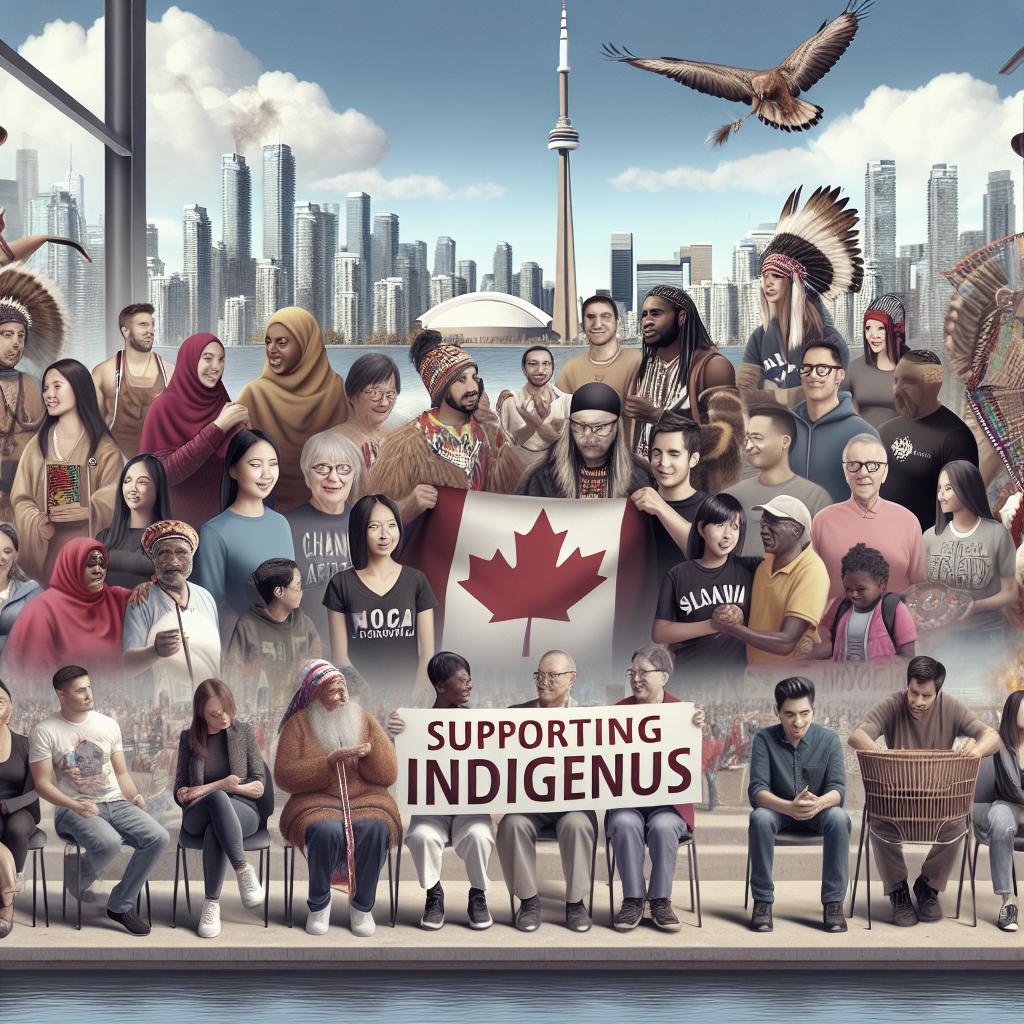“`html
How to Support Toronto’s Indigenous Communities
In the vibrant city of Toronto, supporting Indigenous communities is essential for fostering a thriving, inclusive society. This post explores various ways individuals and organizations can contribute to the well-being of these communities. From child care assistance to cultural centers, employment opportunities, healthcare access, and legal support, there are numerous areas where meaningful contributions can be made. Additionally, understanding the role of government and Métis organizations enhances the overall support system. By addressing these aspects, we can collectively work towards a more harmonious and supportive environment for Indigenous peoples in Toronto.
Child Care
The need for accessible child care is crucial for Indigenous families in Toronto. Many parents face challenges balancing work and family responsibilities, a situation exacerbated by the lack of culturally appropriate child care services. Supporting existing programs that incorporate Indigenous teachings and values can help preserve cultural heritage while ensuring children receive quality care.
Community-driven initiatives focusing on child care create safe spaces for growth and learning. Collaborative projects between Indigenous organizations and local businesses can expand the availability and quality of these services. Volunteering, fundraising, and advocacy for increased government support are effective ways to enhance child care options for Indigenous families.
Cultural and Friendship Centres
Cultural and Friendship Centres play a pivotal role in preserving Indigenous traditions and promoting community well-being. They serve as hubs where people can connect, celebrate heritage, and access essential services. By supporting these centers through donations or volunteering, individuals can help maintain their vital contributions to the community.
Expanding the reach of Cultural and Friendship Centres involves creating partnerships with local governments and institutions to secure sustainable funding and resources. Encouraging participation in events and workshops can also foster greater understanding and appreciation of Indigenous cultures among the broader Toronto population.
Employment and Training
Employment and training opportunities are foundational for empowering Indigenous communities. Access to skills development programs and job placements tailored to Indigenous peoples’ unique needs can significantly impact their economic advancement. Companies can collaborate with Indigenous training organizations to create inclusive employment practices.
Supporting Indigenous entrepreneurship and business initiatives can boost economic independence. Investing in mentorship programs and scholarships can open pathways for Indigenous youth, helping them build successful careers. Promoting awareness of available training and employment resources helps eliminate barriers to participation in the workforce.
Government: Federal and Provincial
The federal and provincial governments play significant roles in supporting Indigenous communities through policy-making and funding. Advocating for responsive policies that address Indigenous peoples’ unique challenges is crucial for impactful change. Staying informed about government initiatives and providing feedback can ensure that programs remain relevant and effective.
Individuals can support these efforts by reaching out to local representatives and participating in community consultations. Advocating for the acknowledgment of Indigenous rights and land claims can also strengthen Indigenous communities’ positions within society, fostering long-term sustainability and growth.
Health
Access to healthcare is a fundamental right, yet many Indigenous communities face disparities in health services. Supporting initiatives that improve healthcare access and quality for Indigenous peoples in Toronto is crucial. Programs that incorporate traditional healing practices and respect cultural values can enhance patient care.
Volunteering or donating to organizations focused on Indigenous health services can help bridge the gap. Increasing awareness and understanding of health-related issues faced by Indigenous communities among healthcare professionals can lead to more compassionate and effective care.
Legal and Lawyer
Legal support is vital for Indigenous communities dealing with issues such as land rights, discrimination, and family law. Promoting access to legal resources and representation can empower Indigenous peoples to advocate for their rights. Pro bono services and community legal education are essential tools in this area.
Collaboration between Indigenous and non-Indigenous legal professionals can lead to more comprehensive support systems. Raising awareness about the importance of Indigenous representation in the legal profession can inspire future generations to pursue law as a career, strengthening advocacy efforts from within the community.
Métis Organizations
Métis organizations play a distinct role in supporting the cultural, social, and economic needs of the Métis people within Toronto’s Indigenous communities. Enhancing collaboration with Métis organizations can lead to tailored programs and resources that address their specific needs and aspirations.
Membership and active participation in Métis organizations help preserve and promote Métis culture and identity. Supporting initiatives such as cultural education, health programs, and economic development projects led by Métis organizations can drive meaningful change for this community subgroup.
Final Thoughts
| Area | Key Strategies |
|---|---|
| Child Care | Support culturally appropriate programs, expand community-driven child care services, advocate for government support |
| Cultural and Friendship Centres | Donate or volunteer, create partnerships for resources, promote cultural events |
| Employment and Training | Develop inclusive employment practices, support entrepreneurship, provide mentorship and scholarships |
| Government | Advocate for responsive policies, participate in consultations, support Indigenous rights |
| Health | Improve healthcare access, incorporate traditional healing, raise awareness among healthcare professionals |
| Legal and Lawyer | Promote legal resources and representation, support pro bono services, encourage Indigenous legal careers |
| Métis Organizations | Enhance collaboration, support cultural and economic initiatives, participate in cultural preservation |
“`


